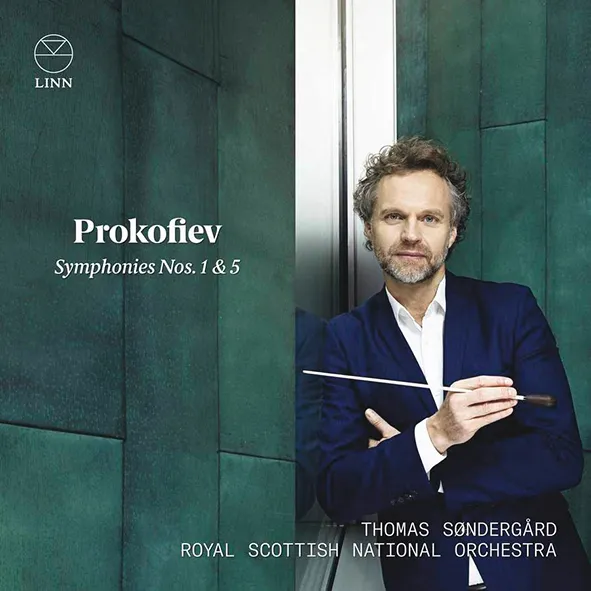
Prokofiev Symphony No. 1 in D major, Op. 25 'Classical'; Symphony No. 5 in B flat major, Op. 100 Royal Scottish National Orchestra/Thomas Søndergård Linn Records CKD 611 56.28 mins
Prokofiev’s Classical Symphony – his affectionate yet light-hearted tribute to Haydn – receives here a performance of one’s dreams. Using a slightly reduced body of strings, Thomas Søndergård elicits from the Royal Scottish National Orchestra neatly articulated and next to immaculate playing (which is high praise, given Prokofiev’s demanding and sometimes less than idiomatic woodwind and string writing in this work). Every movement seems ideally paced, exemplified by the finale – a miraculous combination of briskness, glitter and charm.
Just as polished is their Fifth Symphony, which Prokofiev composed in Stalinist Russia towards the end of World War II. Though Søndergård’s account of the opening movement is less ponderous than usual, the orchestration alone – granite-like in its flinty greys and the sombre gleam of its brass writing – casts us into a quite different world from the Classical. Yet a vital element is missing. There’s none of that frisson of fear that usually accompanies the scherzo’s closing section, vividly conveyed by Lorin Maazel (Eloquence) or Walter Weller (Decca) and especially Soviet-era conductors such as Mariss Jansons, notably in his live recording with the Leningrad Philharmonic (Chandos). And in the slow movement there’s no tension before the sudden eruption of a nightmarish version of its opening arpeggios, let alone any sense of what follows being overshadowed by that calamity. Prokofiev’s claim that his Fifth Symphony ‘praises the free and happy man’ was surely ironic if not disingenuous: to take it entirely at face value, as Søndergård appears to do, is surely to miss a crucial subtext. Daniel Jaffé